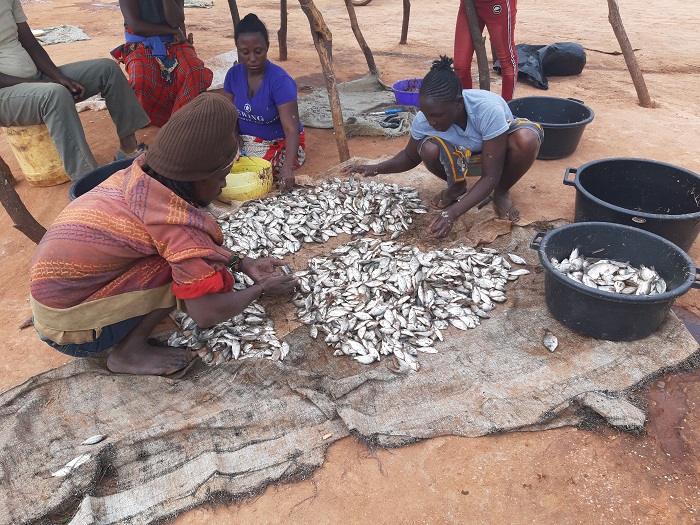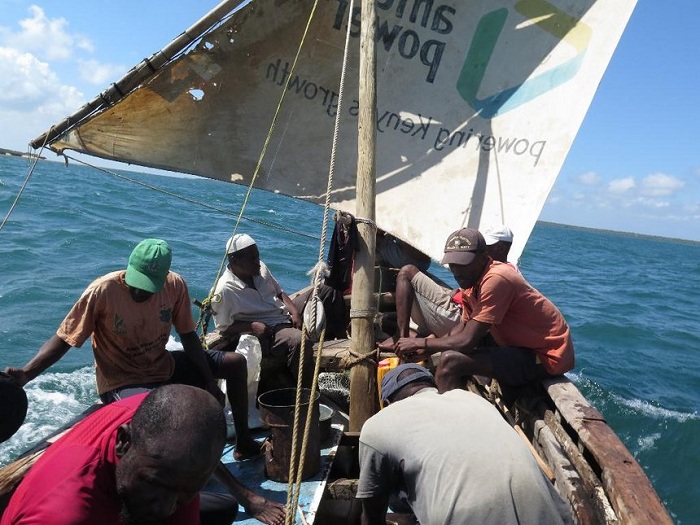
Fish prices have skyrocketed rapidly in Taveta over the past month leaving residents worried that the commodity could soon become a luxurious good.
This is after Tanzanian fishermen stopped landing their catches in Kenyan soil over fears of being placed on forced quarantine as per the ministry of health’s directive on persons arriving from foreign countries.
The majority of the fish consumed in the border town comes from Lake Jipe and Lake Chala, two inter-territorial lakes that lie along the Kenya-Tanzanian border.
Both Kenyan and Tanzanian fishermen fish on the two lakes.
Before COVID-19, most Tanzanian fishermen would land and sell their fish in Kenyan soil in an effort to meet the huge demand on the Kenyan side.
“The supply on the Tanzanian side is very high as they have several water bodies including River Lumi which empties water from Lake Jipe through the Tanzanian side.” Eric Odhiambo, a Fishtrader told Baraka FM.
A spot check by Baraka FM shows that fishmongers are now buying a kilogram of the Jipe Tilapia at sh 70 up from sh 20 along the shores of Lake Jipe.
In Taveta town, the price of Jipe Tilapia has shot up to Ksh. 300 a Kilo up from Ksh. 170.
According to Damian Maghanga a resident of Songhomoi village located a few kilometers from the Lake, the situation has further been worsened by the fact that its not a peak fishing season.
“Between May and August, the supply of fish is always low but the price stays constant. This year it has been different, the price is high and the fish is not commonly being sold in the market” Maghanga said.
EFFECT TRICKLES DOWN
The low supply and skyrocketing prices have trickled down to the fish-filleters who are area residents employed by the fishmongers.
Mary Safarani, a 70-year-old fish-filleter who has been fish -filleting for the past 50 years says her daily earnings have fallen leaving her unable to fend for her four grandchildren and physically challenged daughter.
“ When the Tanzanian fishermen would sell their fish to Kenyan fishmongers, I could make up to Ksh. 300 in daily earnings. Nowadays the much I can make in a day is sh 80.” Mary says.
Last month, President Uhuru Kenyatta ordered the border with Tanzania and Somalia closed in an effort to curb imported cases of COVID-19.
This was after more than 27 truck drivers coming from Tanzania tested positive for COVID-19 at the various entry points along the border.
Even though an exception was made for persons supplying food products from the neighboring country, fishermen from Jipe say it would not make sense for their Tanzanian counterparts to travel for 42 kilometers to the Holili border point in order to enter the country legally after being tested for COVID-19.
“It would be expensive, time-consuming and the fish would probably go rotten before it arrives in Kenya” James Mwamburi, a fisherman says.
The fish traders are now calling on the government to allow fishermen from Tanzania to land their fish in Kenyan soil without any requirements.
LAKES DEGRADED
However, even before the ripple effects of COVID-19 hit the communities living along the two lakes, researchers had already warned that fishing would soon become an expensive affair owing to the degradation of the two lakes.
The researchers had attributed siltation caused by soil erosion from unsustainable agricultural practices to the reduced depth of Lake Jipe.
Lake Jipe is currently three meters deep down from five meters in the 2000s.
” The collapse of the fishery is due to changes in water quality (increase in salinity and turbidity reported by riparian communities), breeding and nursery environments, increase in siltation due to increased human activities in the catchments.” The Global Nature Fund said in 2018.
Both the Jipe Tilapia and Chala Tilapia, the two fish species endemic to the two lakes have been listed as critically endangered by the International Union For Conservation of Nature(IUCN).












